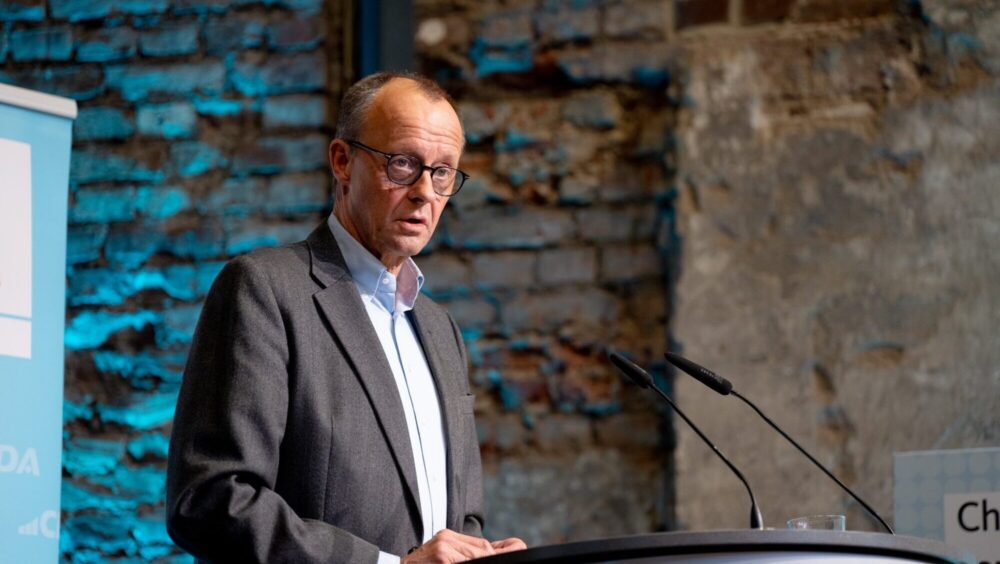
The leader of the centre-right Christian Democratic Union (CDU) in Germany, Friedrich Merz has said he would prioritise revitalising the country’s industrial base ahead of climate protection.
In a speech in the industrial western German city of Bochum on Monday, January 13th, Merz said that climate protection should not be more important than the preservation of Germany’s industrial sector.
Merz called the decommissioning of the last three nuclear power plants by the left-liberal government in the middle of an energy crisis a “serious strategic mistake.” While committing to the phase-out of fossil fuels, he also said that shutting down electricity powered by coal and gas without the necessary capacities in place to replace them “massively endangers” Germany’s already-flailing industries.
The CDU is leading in opinion polls and is expected to win the national elections on February 23rd. It is currently polling at 31%, meaning it will have to enter into a coalition with at least one other party to be able to form a government.
Germany, INSA poll:
— Europe Elects (@EuropeElects) January 13, 2025
CDU/CSU-EPP: 31% (+1)
AfD-ESN: 22%
SPD-S&D: 15% (-1)
GRÜNE-G/EFA: 13%
BSW-NI: 6.5% (+0.5)
FDP-RE: 4%
LINKE-LEFT: 3.5% (+0.5)
+/- vs. 6-10 January 2025
Fieldwork: 10-13 January 2025
Sample size: 2,005
➤ https://t.co/obOCVirJfd#btw25 #Bundestag #wahlen pic.twitter.com/zwayMIU2Te
Due to its rejection of cooperating with the right-wing Alternative für Deutschland (AfD), the CDU will have to either settle for power-sharing with the Social Democrats or the Greens—the two current governing parties, whose energy policies the CDU deplores.
The radical climate policies, the closing of Germany’s nuclear power plants, and the decision to stop importing cheap Russian gas have contributed to high energy costs—weakening industrial output and a declining economy.
Turning nuclear power back on would be a reversal of the policies of the previous CDU chancellor Angela Merkel, who steered the party away from its conservative roots, and adopted left-wing, green policies, including the phasing out of nuclear energy. In 2011, following the Fukushima disaster, the Merkel government decided to shut down all of the country’s seventeen reactors by 2022. The last three remaining plants were closed by the current cabinet.
Friedrich Merz stressed that the chance of reconnecting the last three reactors would be unrealistic. However, the CDU’s election manifesto states that it wants to stick to the “nuclear energy option,” and wants to “examine the resumption of operation of the nuclear power plants that were recently shut down.”
In his speech on Monday, the CDU leader also shared his scepticism about the energy transition in Germany’s steel industry, questioning whether the rapid switch to hydrogen-powered steelworks will be successful:
Where will the hydrogen come from? We don’t have it. And if we do it with hydrogen, then a ton of steel will still be at least €300 more expensive than if it is produced conventionally.
“We must eliminate ideological considerations in industrial policy,” Merz stressed.
The steel industry is expected to require large quantities of hydrogen to shift away from coal. The industry is one of the country’s largest CO2 emitters, and the German government is funding its conversion with billions of dollars in subsidies. But German steel industry leaders have expressed concerns about possible delays in building out the required hydrogen production and distribution networks, writes dpa.
